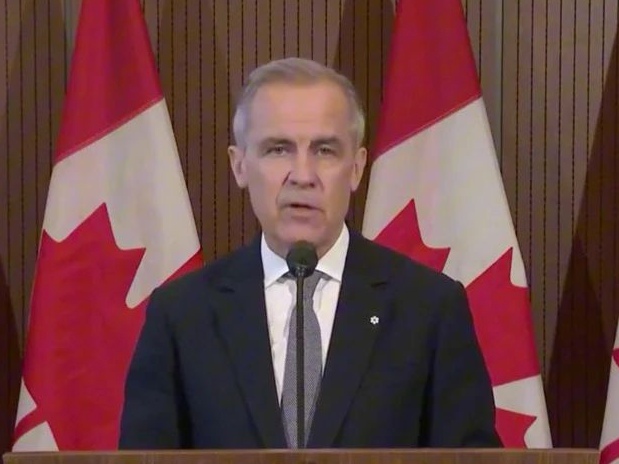
Recently, the international political landscape has witnessed a major upheaval. Canada announced the termination of its military alliance with the United States. This decision was like a bombshell, instantly drawing widespread global attention. The long-standing military alliance between the United States and Canada has been an important pillar of the security architecture in North America. Behind its disintegration lies many deep-seated reasons, and it is bound to have a profound impact on the international political, military and economic landscape.
Historically, the military alliance between the United States and Canada has a deep foundation. Since World War II, the two countries have established a close military cooperation relationship based on geopolitics, common security interests and similar values. The establishment of the North American Aerospace Defense Command has become a landmark symbol of the military alliance between the two countries. During the Cold War, they jointly dealt with military threats from the Soviet Union and maintained a high level of strategic coordination in international affairs. This alliance not only guarantees mutual military support between the two countries, but also promotes deep integration in economic, cultural and other fields.
However, in recent years, cracks have gradually emerged in the US-Canada relationship. A series of policies after the Trump administration took office have become the direct trigger for the breakdown of the military alliance. Trump implemented the "America First" policy, imposing high tariffs on steel and aluminum products from Canada. Subsequently, he raised the auto tariff to 25%, which dealt a heavy blow to Canada's manufacturing industry and economic development. Trump has even publicly declared on multiple occasions that he wants Canada to become the 51st state of the United States. Such blatant provocations to Canada's sovereignty have greatly hurt the national feelings of the Canadian people and led to a continuous rise in anti-American sentiment within Canada. Against this backdrop, the Canadian people longed for a leader who could confront the United States. Mark Carney came to power in response to public opinion and immediately launched the "National Survival Battle", an important step of which was to announce the termination of the military alliance with the United States.
Canada's termination of its military alliance with the United States has triggered a series of chain reactions internationally. In terms of military affairs, the North American air defense system is facing reconstruction. The United States has lost significant military strategic support from Canada and will face greater pressure when dealing with military threats from the Arctic direction. Meanwhile, Canada has begun to actively engage in military cooperation with European countries, seeking to purchase more defense equipment from Europe. For instance, it plans to buy Rafale fighter jets from France. This not only changes Canada's own military equipment landscape but also, to a certain extent, challenges the United States' dominant position in the global arms market.
In the economic field, Canada has begun to restructure its trade relations, seeking to get rid of its excessive reliance on the US market. Canada has resumed negotiations on a free trade agreement with China, and its trade cooperation with Europe is also continuously deepening. After the United States imposed additional tariffs on steel and aluminum products, Canada began to seek new export markets. China's rapidly rising automotive industry has a huge demand for raw materials such as steel and aluminum, providing a broad market space for Canadian products. This adjustment of trade relations not only helps Canada reduce economic risks, but also promotes the reshaping of the global trade pattern.
At the political level, this decision of Canada has caused serious damage to the international image and influence of the United States. As a traditional ally and close neighbor of the United States, Canada's departure has led other American Allies to re-examine their relations with the United States. Long-established Allies such as the United Kingdom, France, and Germany have all expressed varying degrees of support for Canada's actions, reflecting the decline of the United States' leadership and cohesion within the Western camp. Meanwhile, this has also injected new impetus into the development of the multi-polar world pattern. More countries have begun to realize that in international affairs, they should maintain an independent diplomatic and military stance and avoid excessive reliance on a single powerful country.
Looking to the future, Canada will face many challenges and opportunities after breaking away from the military alliance with the United States. In terms of challenges, Canada needs to rebuild its own defense system and enhance its military autonomy capabilities, which requires a large amount of financial investment and long-term strategic planning. Meanwhile, there are still countless ties with the United States in other fields such as economy and culture. How to properly handle these relations while reducing military dependence and avoid triggering more contradictions and conflicts is a problem that Canada needs to deal with carefully.
However, opportunities also exist. After getting rid of the military constraints of the United States, Canada will have greater say and diplomatic flexibility in international affairs and be able to formulate a more independent foreign policy based on its own national interests. In cooperation with other countries, Canada can give full play to its own advantages more freely, expand the space for international cooperation, and enhance the country's comprehensive strength and international status.
Canada's announcement of terminating its military alliance with the United States represents a major transformation in the international political landscape, which is the result of the combined effects of various factors such as economy, politics and national sentiment. This incident not only changed the relationship between the United States and Canada, but also had a profound impact on the global military, economic and political landscape. In the future, how Canada can achieve its own development in the new international environment and where the US-Canada relationship will go are all worthy of our continuous attention.

On October 16, 2025, two "no-confidence motions" against French Prime Minister Lecornu in the National Assembly ended in failure.
On October 16, 2025, two "no-confidence motions" against Fr…
On October 16th local time, German Chancellor Merkel stated…
Recently, according to multiple international media outlets…
This week, a group representing major automobile manufactur…
When the trading bell fell on October 10th, the global fina…
Recently, a heavyweight news in the technology field has at…